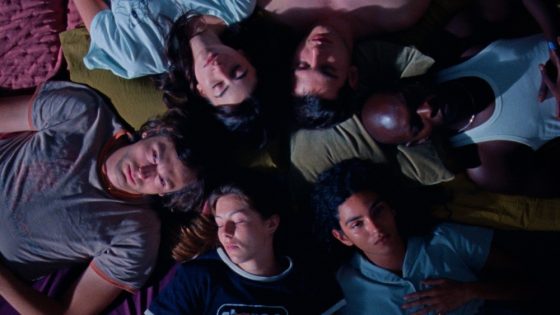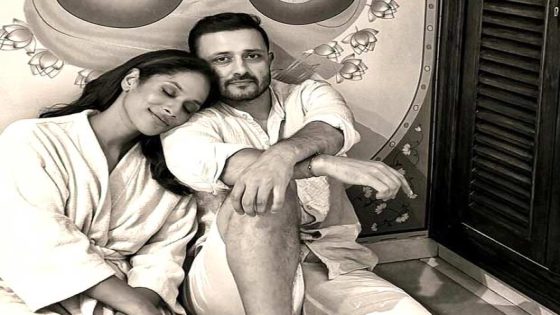The melancholy, fable-like French drama “Eternal Playground” has a glowing warmth from its very first moments. That comes from the open beaming face of its lead actor, Andranic Manet. He plays Gaspard, a young music teacher in Paris who’s grieving the death of his twin sister. As he wishes his students a good summer on the last day of school, the actor’s face registers the promise and possibility that may come while adding a bittersweet tinge of what may never be regained, setting the tone for co-directors Pablo Cotten and Joseph Rozé’s story of friendship and growing up.
Soon after, Gaspard’s five best friends arrive to spend a few days with him in the empty school building. They all used to be students there and have come together to honor Gapsrd’s sister Louise, whose last wish was for all of them to gather and reclaim the fun, frivolity and innocence they shared as middle schoolers. But that’s all they had in common. Soon enough, old wounds, feelings of love and abandonment and stubborn rivalries also emerge. This is a group of neurotics who are pushing 30 but regress to adolescence when they come together.
If this plot summary makes “Eternal Playground” sound like the French version of the numerous American movies or TV shows about young-ish friends navigating life and love, that couldn’t be further from the truth. The difference comes in the offbeat jovial tone. Cotten and Rozé’s screenplay has an affable sweet center. Many scenes luxuriate in following these characters as they recall happier times together. Via Noée Abita’s smooth narration, Louise comments on the proceedings, adding an extraterrestrial note, as if an angel is actually watching over them. These might be affectations, but they also give the film its singular tone, making it something much less conventional.
Alas, the screenplay doesn’t allow for many distinct characteristics for its six main characters, who are defined either by their profession or by their relationship to their late friend Louise. Additionally, in the latter half of the film, the screenplay adds plot points that are in distracting contrast to the previously established tone. There’s a suicide attempt, a fire and a sort-of car chase. While all are resolved amicably and quickly, they feel like attempts at adding something extra that the film didn’t need.
Gaspard is the lynchpin of this motley group, and in Manet’s grounded performance, “Eternal Playground” reveals what it’s ultimately about. Sometimes when grieving, one tries to go back to a happier time instead of dealing with the pain. Manel ably conveys both Gaspard’s palpable suffering and his innocent, wide-eyed optimism. This is someone who believes that by being with his middle school friends, he might be able to bring back both his sister and the blissful times they shared.
Believable as friends with a special bond, the rest of the ensemble unobtrusively complement Manet’s performance. Two actors emerge as standouts among equals. As Adel, a successful musical artist, Alassane Diong carries himself with brash bravado. As Alma, a woman contemplating motherhood, Nina Zem underplays hesitance with a quiet disposition that makes it doubly affecting.
As directors, Cotten and Rozé, rely on their actors’ faces, coupled with slow methodical camera movements to find the story. As the camera glides from one face to another, or starts in a close-up then gradually expands to include others, the complicated interrelationships between these characters are revealed. “Eternal Playground” sometimes feels like a fanciful lark untethered from reality, yet the filmmakers in total sync with their actors and Tara-jay Bangalter’s camera find a way to make it feel truthful.
Source Agencies




